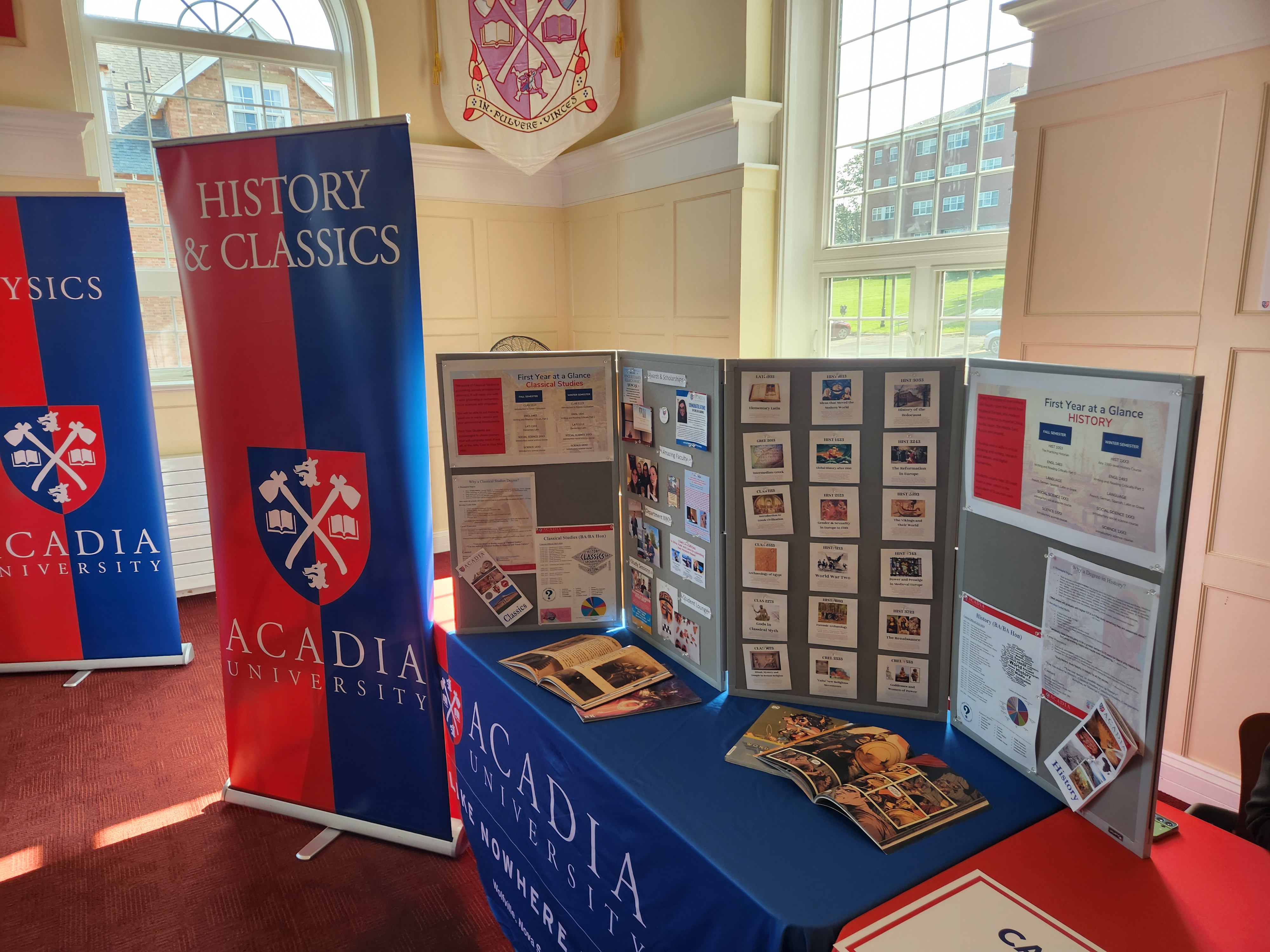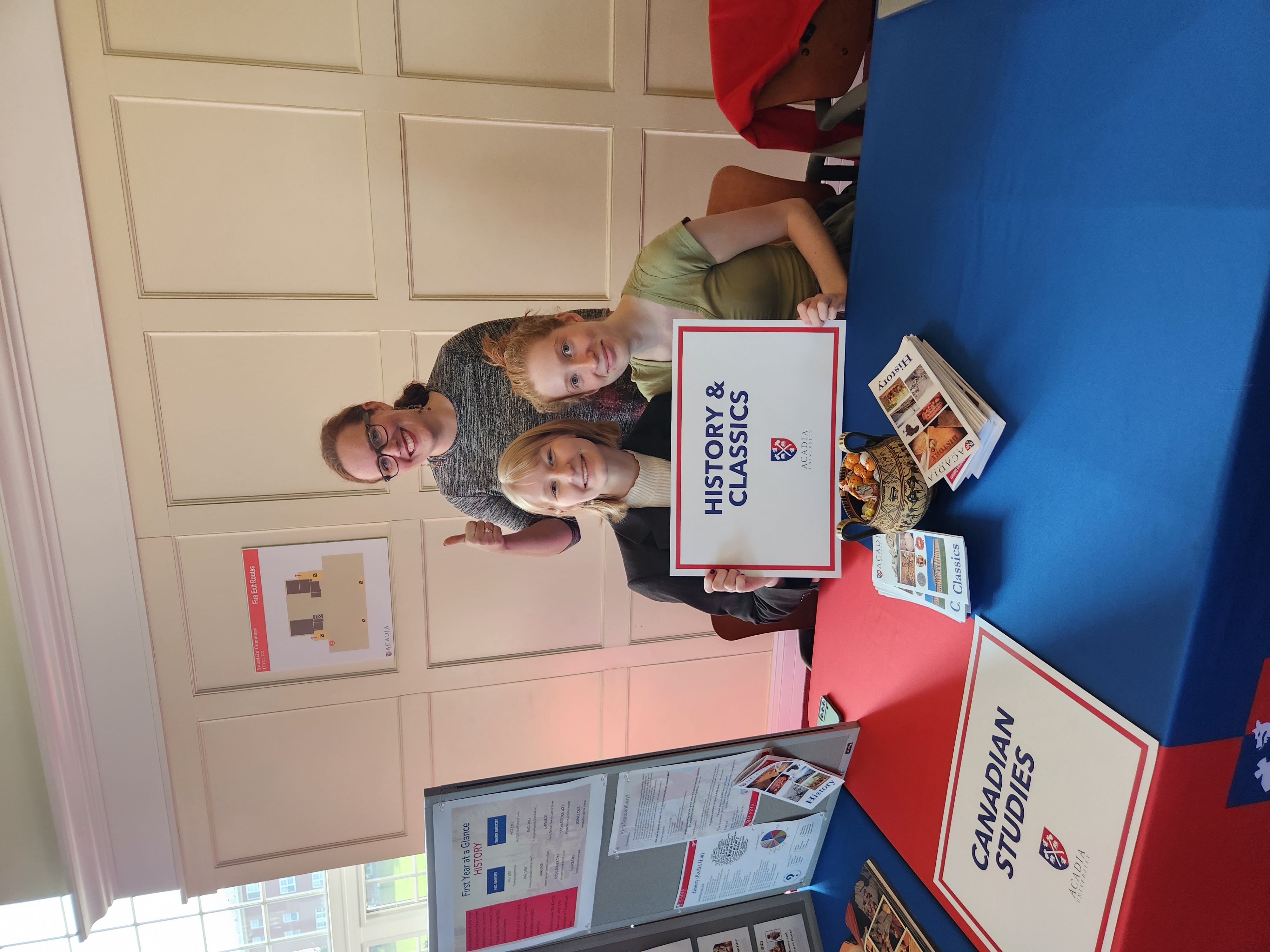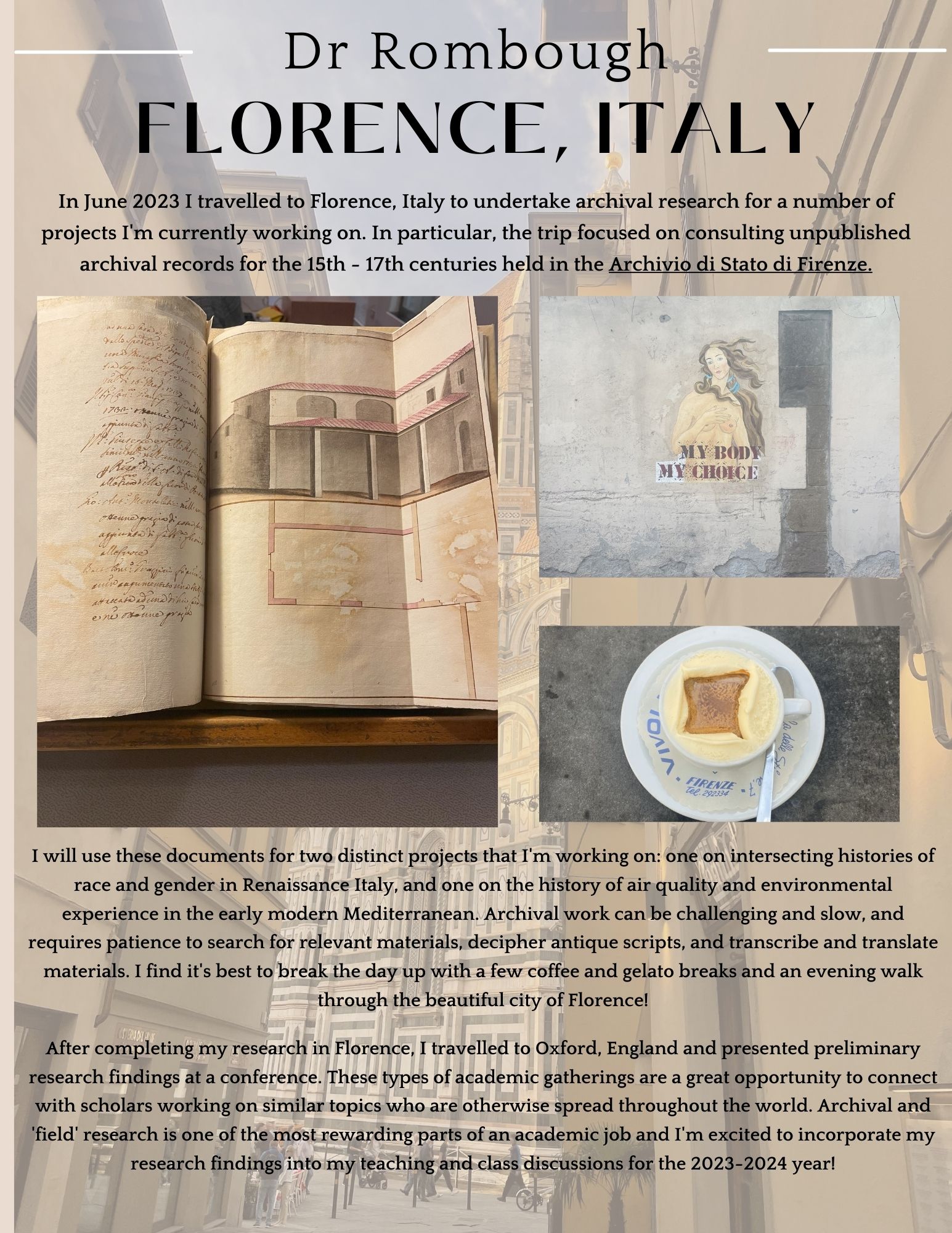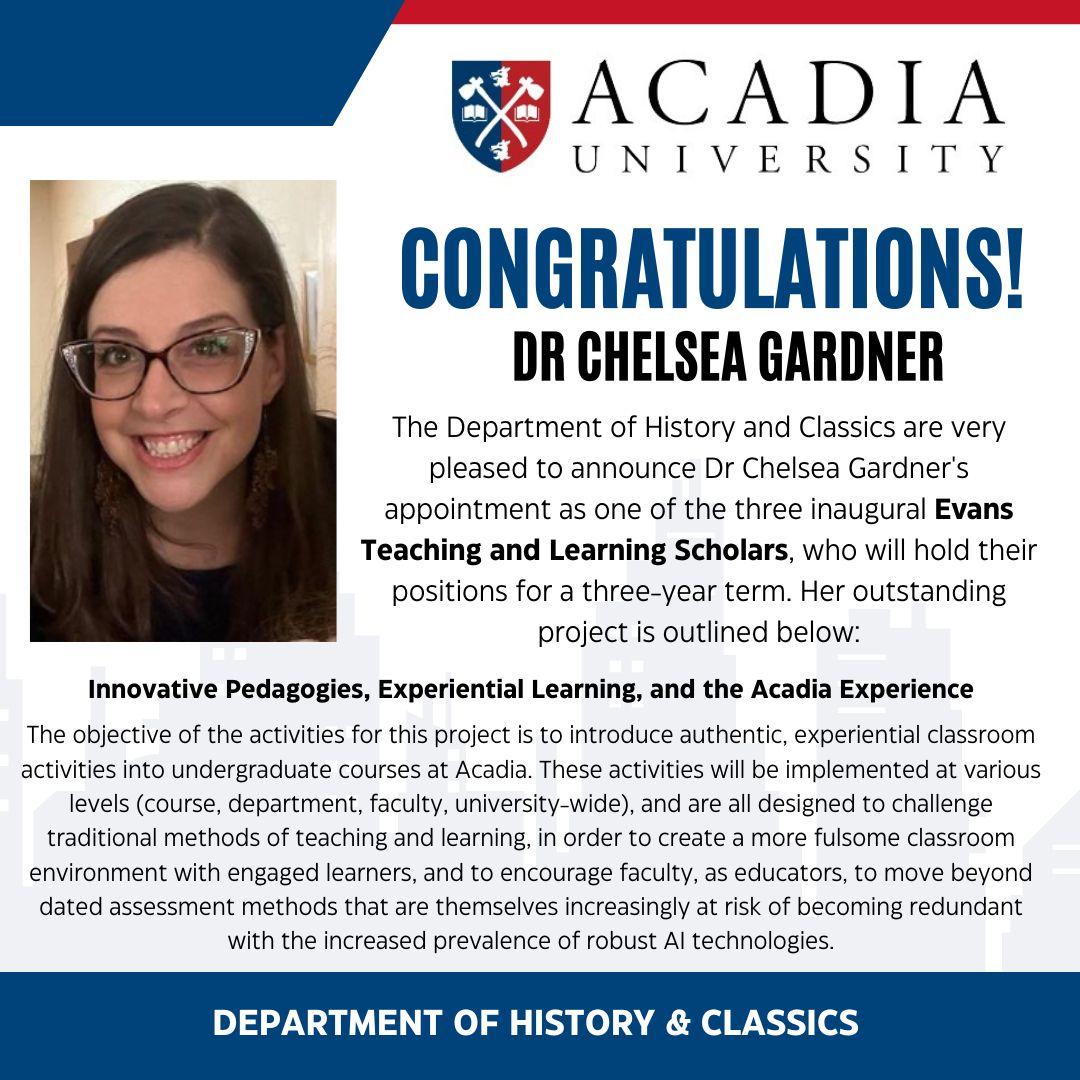ACADIA MIA MISSION to AUSTRIA- SUMMER 2024
On 19 May 2024, a group of 10 students left for Austria to take part in Acadia University's first Field School / Mission to search for a MIA aircrew from World War 2. Check back over the next 6 weeks to see updates on their progress and adventure in Europe.
 Students already hard at work on site in their Acadia MIA Recovery gear.
Students already hard at work on site in their Acadia MIA Recovery gear.
"The first few weeks have been a whirlwind of an experience. Even for students returning to fieldwork - who have been on excavations before - our skills of teamwork, problem solving, and resolve have been put to the test. Nonetheless, it's been an exciting time and the artifacts being discovered keep us going. I asked my fellow students to describe their experience so far with one word. I've gotten 'fulfilling', 'thrilling', 'interesting' and 'insightful'. And other apt descriptions such as 'workout', 'sweaty' and 'muddy'. I'm equally as excited as everyone else to see where the next few weeks take us and the discoveries to be made. However, I already know this will be a period in my life that I'll remember forever." - Cameron Barnard, Acadia Classics Major

One of our undergraduate student, Gwen Raffo, had the most amazing opportunity over the Summer. Read more about this experience below.
ACADIA’S NEWEST ARCHAEOLOGISTS DIG WITH A PURPOSE: AN ACCOUNT OF WWII FIELD WORK IN FRANCE
This student perspective piece was written by Cameron Barnard, a third-year Classics and Biology undergrad at Acadia University and the 2023 recipient of the Canadian Federation of University Women (CFUW) Wolfville Award.
In the summer of 2023, eight students – six from Saint Mary’s University (SMU) and two from Acadia – travelled to France with the goal of recovering the remains of a missing American World War II aircrewman. The only one out of the six in his crew who is still unaccounted for, he had likely been trapped and suffered traumatic injuries when his plane went down. In our search to find biological pieces of him – such as small, fragmented bone – we were able to retrieve two personal items: his watch back and I.D. (dog) tag. This is important because that means we are close to finding his remains and returning him to his family.
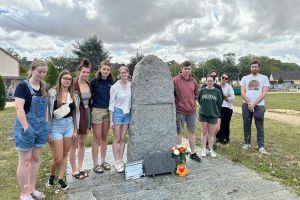
Student volunteers stand next to aircrew memorial in France.
Last year, the program – funded by the Defence POW/MIA Accounting Agency (DPAA) – was hosted through SMU. This year, Acadia University is hosting the Recovery Program, and in doing so, we’re also taking on the role of the searchers, archaeologists, and optimists. The next mission is scheduled for Austria this spring and will be led again by Acadia professor, Dr. Aaron Taylor.
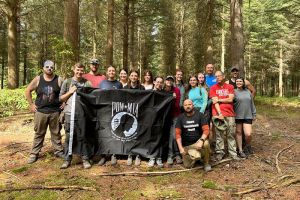
DPAA France Mission 2023 crew (students and staff) posing with DPAA flag.
As an undergrad archaeological student, I never imagined that I would have an opportunity like this until much later in my career. Not only did this program give me invaluable hands-on experience, but I was filled with empathy and honour by the end of the dig – for my professor, my peers, and – most especially – for the man we were looking for. There is a bond that builds between each other, to the mission, and to the deceased when you spend eight hours a day, every day, with the same goal – to find him. At one time, the student volunteers may have been drawn to the project as a means to gain a credit while exploring a new country and getting hands-on practise, but it came to mean so much more to us in the end. We found a purpose beyond ourselves, which we got to experience together.
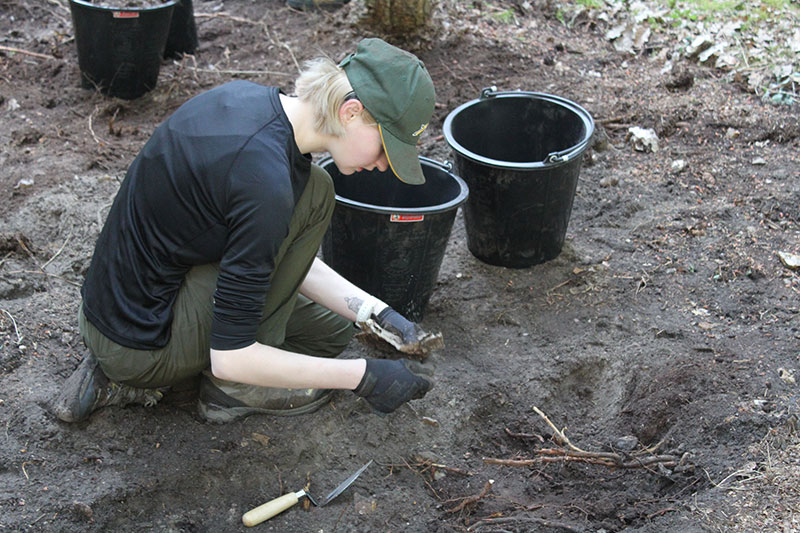
Author Cameron Barnard recovering aircraft wreckage.
Although this program has an emphasis on archaeology (specifically forensic archaeology), it is a brilliant opportunity for students in multiple fields – including anthropology, biology, geology, and history – to combine their passions. It is a chance to not only learn but to make life-long connections and meet individuals in your prospective field with years (or even decades) of experience. This is a program never before seen in Canada, let alone as part of an undergrad education. It is an experience like no other, and one that I – along with others, I imagine – will always be grateful for.
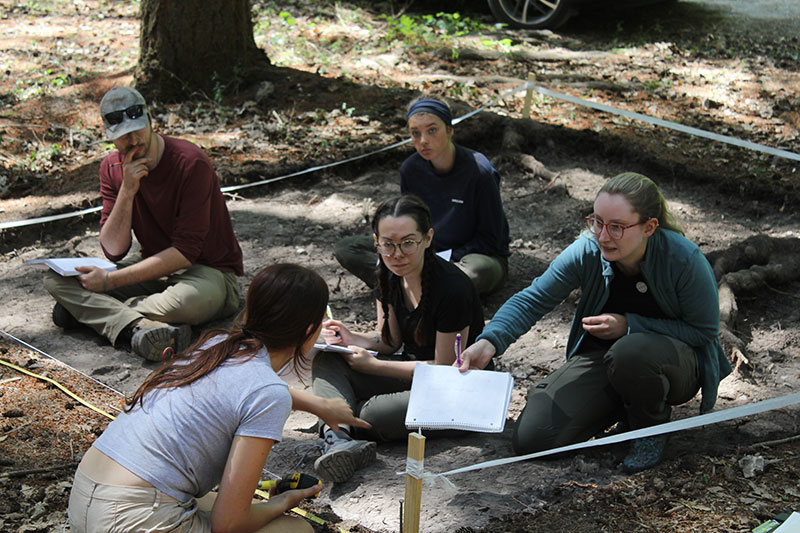
Student volunteers studying unit stratigraphy, including Acadia student Bella MacQuarrie (top middle).
Acadia University - Spotlight News
Our own Dr Mariah Cooper was mentioned in the House of Assembly this past week. Take a listen by clicking below:
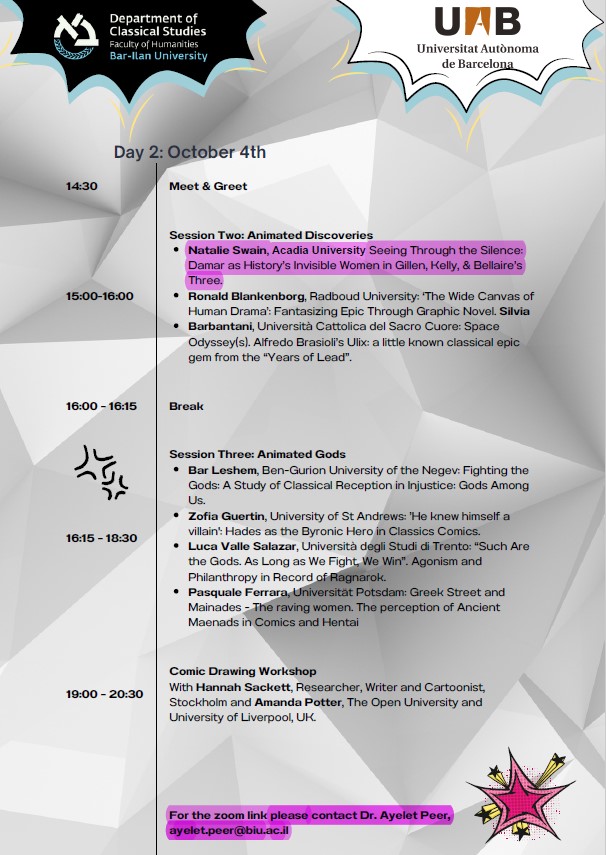
OPEN HOUSE DAY - SEPTEMBER 28
